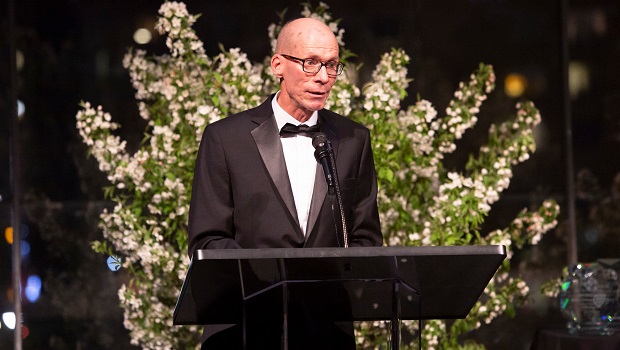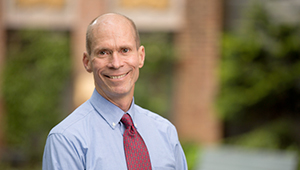Suicide prevention must embrace complexities and nuance

Researchers and practitioners have to respect individuality while developing large-scale solutions, says Dr. Gregory Simon.
Upon receiving the American Foundation for Suicide Prevention (AFSP)’s Research Award at its Lifesavers Gala 2019 on May 7 in New York, Gregory Simon, MD, MPH, offered the thoughts below, thanking his colleagues and explaining the issues they must straddle in conducting their work.
Dr. Simon is a psychiatrist at Kaiser Permanente Washington and a senior investigator at Kaiser Permanente Washington Health Research Institute. He also leads the Mental Health Research Network, a consortium of research centers affiliated with 13 large health systems across the United States.
My sincere thanks to AFSP for this award recognizing our work and for supporting our work through research grants.
I should also thank and give credit to the many members of my research team – who are too numerous to name. They include my colleagues in Seattle and at the 12 other centers across our Mental Health Research Network.
And I should also acknowledge the clinical leaders of our research network’s 13 health systems for their willingness to honestly examine our shortcomings and make real changes in the care that we provide. Because of their commitment, our research to identify and address suicide risk is actually changing care for millions of people.
Seeing our research have that kind of impact is both heartening and humbling. It’s humbling because getting the right answers is no longer just academic. We do a lot of math, so we double- and triple-check every line of code and every result. But many of the most important questions can’t be answered by math.
A member of our team points out that our artificial intelligence tools to identify people at high risk of suicide often point to people who already suffer disadvantage or discrimination. Are we directing help to those who need it most? Or could we be reinforcing prejudice and stigma? That’s a challenging question that cannot be answered with an “either/or” response.
I think we can only answer “Yes.”
This work confronts us with many similarly challenging questions.
Is suicide risk a medical condition needing treatment? Or is it a social wound demanding our collective action?
We can only answer “Yes.”
Once we identify people at risk, is vigorous and persistent outreach an ethical obligation? Or a potential affront to autonomy and privacy?
We can only answer “Yes.”
As we implement large-scale prevention programs, is the key ingredient standardized and consistent care? Or is the key ingredient individualized compassion?
We can only answer “Yes.”
None of those are questions that we can crisply answer. Instead they are tensions that we must embrace and live inside of. We must do the best we can with the answers we have.
One answer, however, is certain enough.
Suicide is the most anguished, irreversible, and sometimes violent way that a person in pain can answer “No” to any question about the future. We will gently and respectfully disagree.
Regarding that question about a future, we will definitely answer “Yes.”
suicide prevention

Patient perceptions shine light on preventing unexpected suicide attempts
Julie Richards, motivated by clinical practice needs and lived experience, is researching suicide-related care.
risk assessment

Suicide prevention: Research network finds new way to predict risk
A study led by KPWHRI researches uses machine learning to determine which patients are in greatest need of intervention.
Honors

Dr. Greg Simon wins national suicide prevention award
Kaiser Permanente physician-scientist will receive American Foundation for Suicide Prevention’s Lifesavers Research Award.


